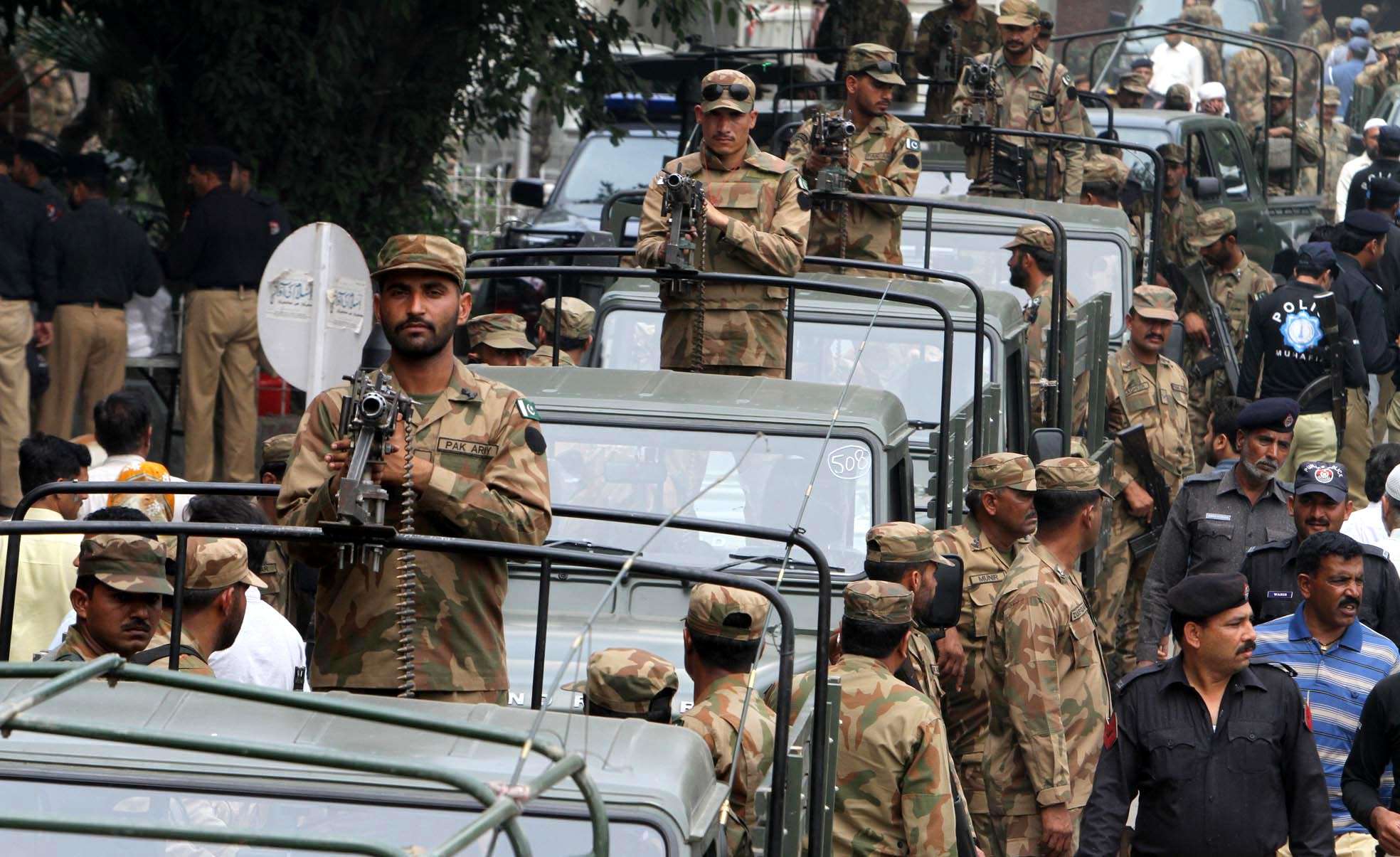 ROUNDUP: 824 KILLED, 2,339 INJURED IN BOMB ATTACKS ACROSS PAKISTAN IN 2014
ROUNDUP: 824 KILLED, 2,339 INJURED IN BOMB ATTACKS ACROSS PAKISTAN IN 2014
ISLAMABAD, Jan 01, 2015 (Xinhua via COMTEX News Network) —
by Jamil Bhatti
At least 824 people were killed and 2,339 others injured in 372 bomb attacks, including 26 suicide bombings, that occurred across Pakistan during 2014, according to official statistics.
According to the data, the suicide attacks killed 249 people and left 582 wounded in different areas of the country last year. In 2014, the number of suicide attacks dropped by 34 percent from the year of 2013 when 39 suicide blasts took place.
Terrorists staged 21 suicide attacks during the first six months of the year, seven in January, six in February, one each in March and April, two in May and four in June, which killed 163 people and injure 348 others. But the number of suicide attacks dropped in the second part of the year after the launch of the military operation “Zarb-e-Azb” against militants in the country’s northwestern tribal region bordering Afghanistan.
During the second half of the year, terrorists carried out only five suicide attacks that killed 86 people and left 234 wounded.
As the country’s military and law enforcement agencies started actions against terrorists, the number of total casualties in 2014 dropped by around 46 percent from the previous year, when 1,532 persons were killed in 324 bomb attacks.
In terms of the number of deaths, January of 2014 was the deadliest month when 168 people lost their lives and 401 others sustained injuries in 42 bomb attacks. The month of August was second most deadliest, when 103 people were killed and 309 others injured in 53 attacks.
The worst attack of the year occurred on Nov. 2, when a suicide bomber exploded his jacket amid a crowd of over 200 people who were returning after attending a “lowering of the flags” ceremony and Rangers parade at the Wagah border crossing between Pakistan and India. The attack killed at least 62 people and left over 150 others injured.
The ceremony, a tourist favorite held everyday, is attended by hundreds of people, including foreigners, from both Pakistani and Indian sides.
A banned militant group “Jundallah” (Soldiers of God) claimed responsibility for the attack. The group, which is based in the country’s northwestern tribal regions, is allegedly behind a wide range of terrorist attacks in the country.
The second deadliest attack came on June 8, when a suicide bomber hit a hotel in Taftan area of the southwestern Balochistan province, where a group of pilgrims were staying on their way back from Iran, killing 30 people and leaving several others injured.
In another attack on Jan. 21, a suicide bomber rammed his explosive-laden vehicle into a bus carrying pilgrims in the southwestern district of Mastung, killing 29 people and wounding over 30 others.
On Jan. 19, at least 26 Pakistan soldiers were killed and over 20 others sustained injuries when a suicide bomber detonated his explosive-packed vehicle amid the convoy of security forces in the northwestern Bannu district.
On Jan. 20, at least 13 people, including eight security personnel, were killed and over 20 others wounded when a teenager riding a bicycle blew himself up near an army check post in the Royal Artillery Bazaar, some 500 meters away from the General Headquarters of Pakistan army in the garrison city of Rawalpindi.
Pakistan’s capital Islamabad also came under bomb attack on April 9, when at least 23 people were killed and many others were injured in an explosion in a vegetable and fruit market of the city. Police said the explosives were planted in a guava box, which at the time of auction exploded.
The statistics revealed that terrorists carried out 372 bomb blasts, killing 674 civilians as well as 105 military personnel and 45 policemen, respectively.
Besides civilians, security forces and police, some politicians also came under direct bomb attacks.
On Oct. 23, a suicide bomber attacked Jamiat Ulema-e-Islam-F ( JUI-F) party chief Maulana Fazl-ur-Rehman after a public rally in Quetta, the provincial capital of Balochistan. The leader remained unhurt in the attack as he was sitting in a bombproof vehicle, but five people lost their lives and 30 sustained injuries.
A majority of the bombings were triggered by remote control devices that were planted on the roadsides.
Pakistani Taliban, who threatened to increase attacks on the security forces and police, claimed responsibility for most of the incidents while nationalist militant groups also claimed for some attacks, especially in the southwestern province of Balochistan.










Add comment